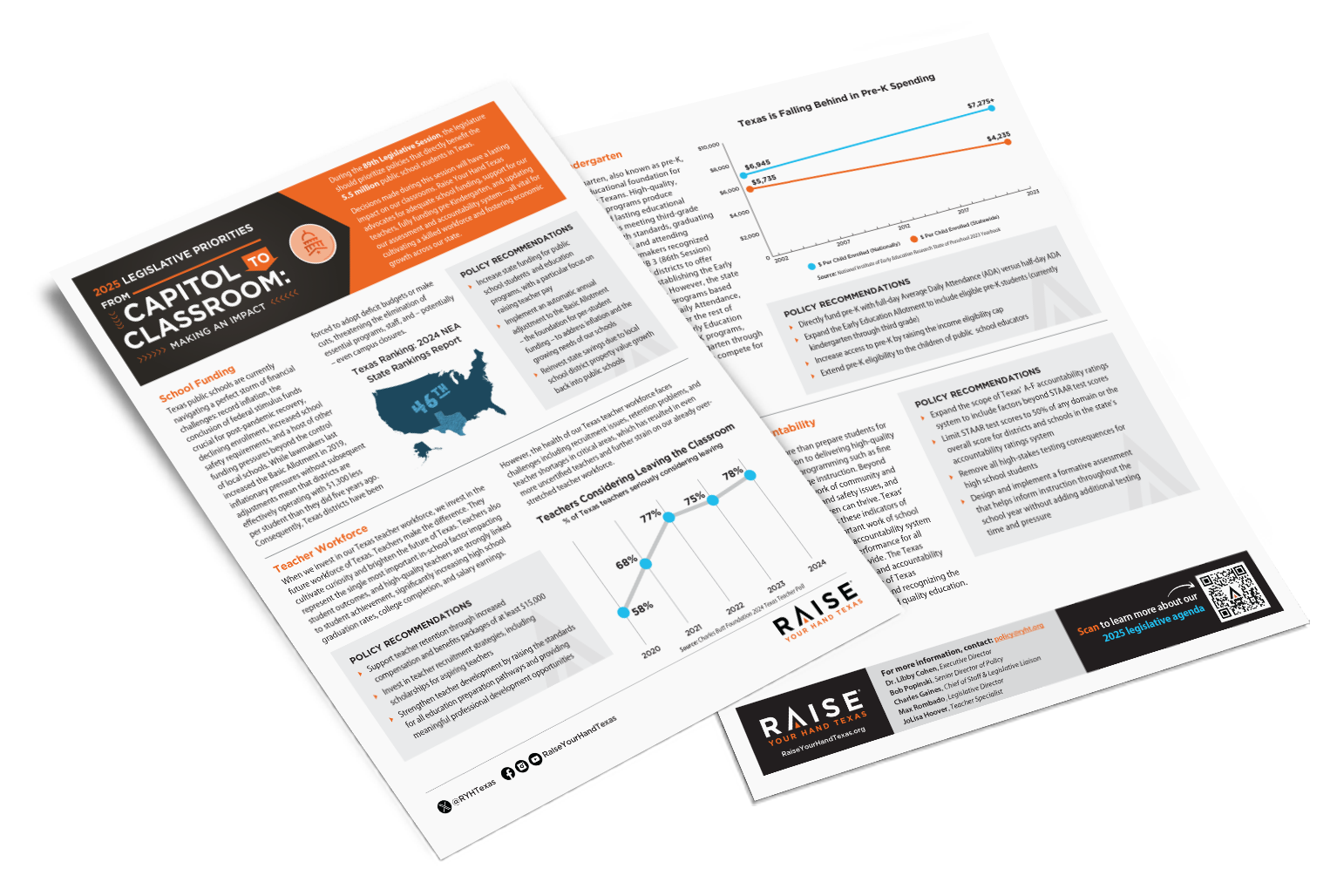Through equity and innovation and school choice within the public school system, we believe Texas can create a world-class school system that enriches our students academically, physically, emotionally, and socially to best prepare them for the future. A brighter future for all Texans is possible with a strong public education system.

89th Session’s Legislative Priorities
Raise Your Hand Texas believes the future of Texas is in our public schools. We must improve school funding, give teachers a pay raise, continue to invest in high-quality programs, ensure public dollars remain in public schools, and enhance public accountability. Building a bright future for our state takes all of us. Let’s build the future of Texas together.
Raise Your Hand Texas focuses on seven policy areas, advocating on behalf of public schools, students, and teachers, while also working to influence legislation that supports these issues.
School Funding
A high-quality and well-funded public education system is essential to help every child to reach their full potential.
Learn MoreTeacher Workforce
The quality of our education system and the long-term viability of our economy are inextricably linked to the effectiveness and diversity of our teachers. Teachers are the heart of our state’s public education system.
Learn MoreSupporting the Whole Child
Every Texas student needs a safe and healthy educational environment in order to meet their full academic potential.
Learn MoreAssessment & Accountability
Texas public schools should be held to appropriate standards of quality through a comprehensive assessment and accountability systems that accurately reflects academic performance and other measures of student progress.
Learn MoreFuture Workforce
Our public schools are educating Texas’ future workforce. As Texas struggles to keep pace with 21st century workforce demands, Raise Your Hand Texas believes Texans deserve a public school system that creates a highly skilled workforce capable of meeting tomorrow’s challenges.
Learn MoreSchool Vouchers
School vouchers divert scarce public education funds to private schools, which are not required to comply with federal protections for students with disabilities or report and track spending and student performance.
Learn MoreCharter Schools
Charter schools offer the opportunity to foster innovation in public education, especially for our most at-risk students. However, rapid expansion of charter schools is creating tax inefficiencies, unequal access for students, and a parallel system of publicly funded schools.
Learn More
Where We Stand
We have established seven core policy priorities — our true north — that guide our long-term work strengthening and supporting public schools in Texas.
